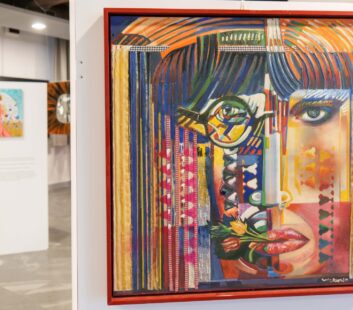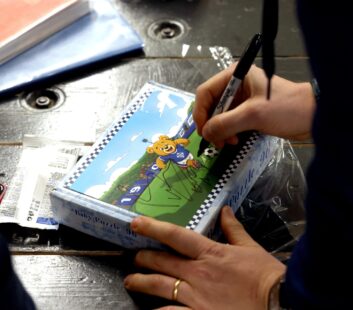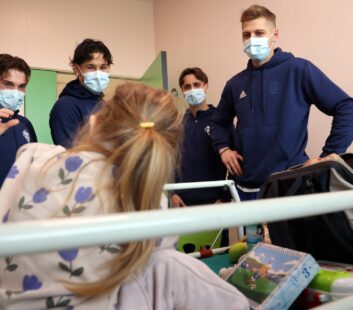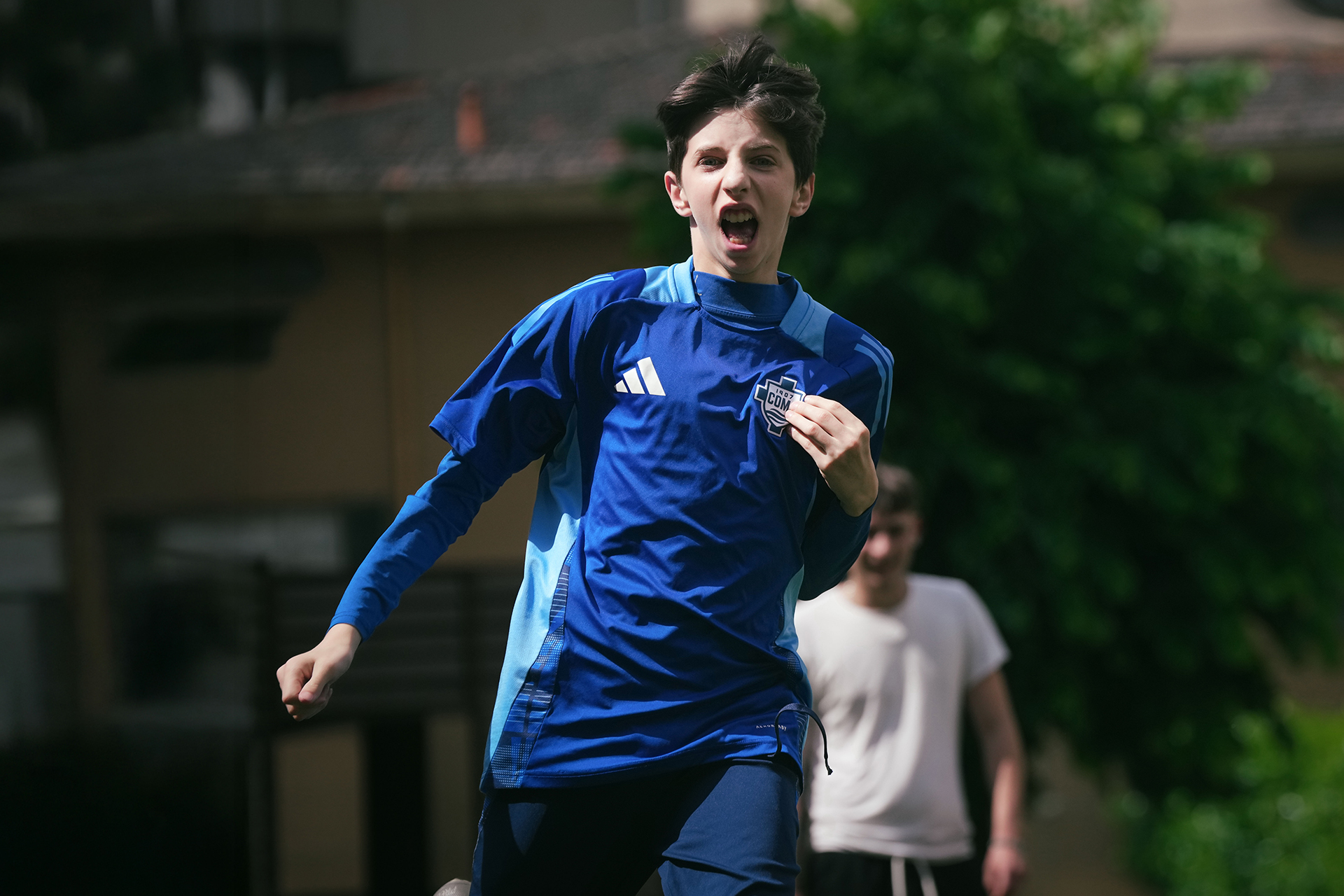
COMMUNITY
Como 1907 Supports the So-Stare Project and the Fuori Classe Kids
In the heart of Como, sport and social commitment come together in a special project, where inclusion becomes a concrete and everyday reality. Como 1907, in collaboration with Fondazione Somaschi, is creating educational and sporting pathways focused on young people—especially those living with disabilities or challenging pasts. Two initiatives in particular embody this vision: Fuori Classe and So-Stare.

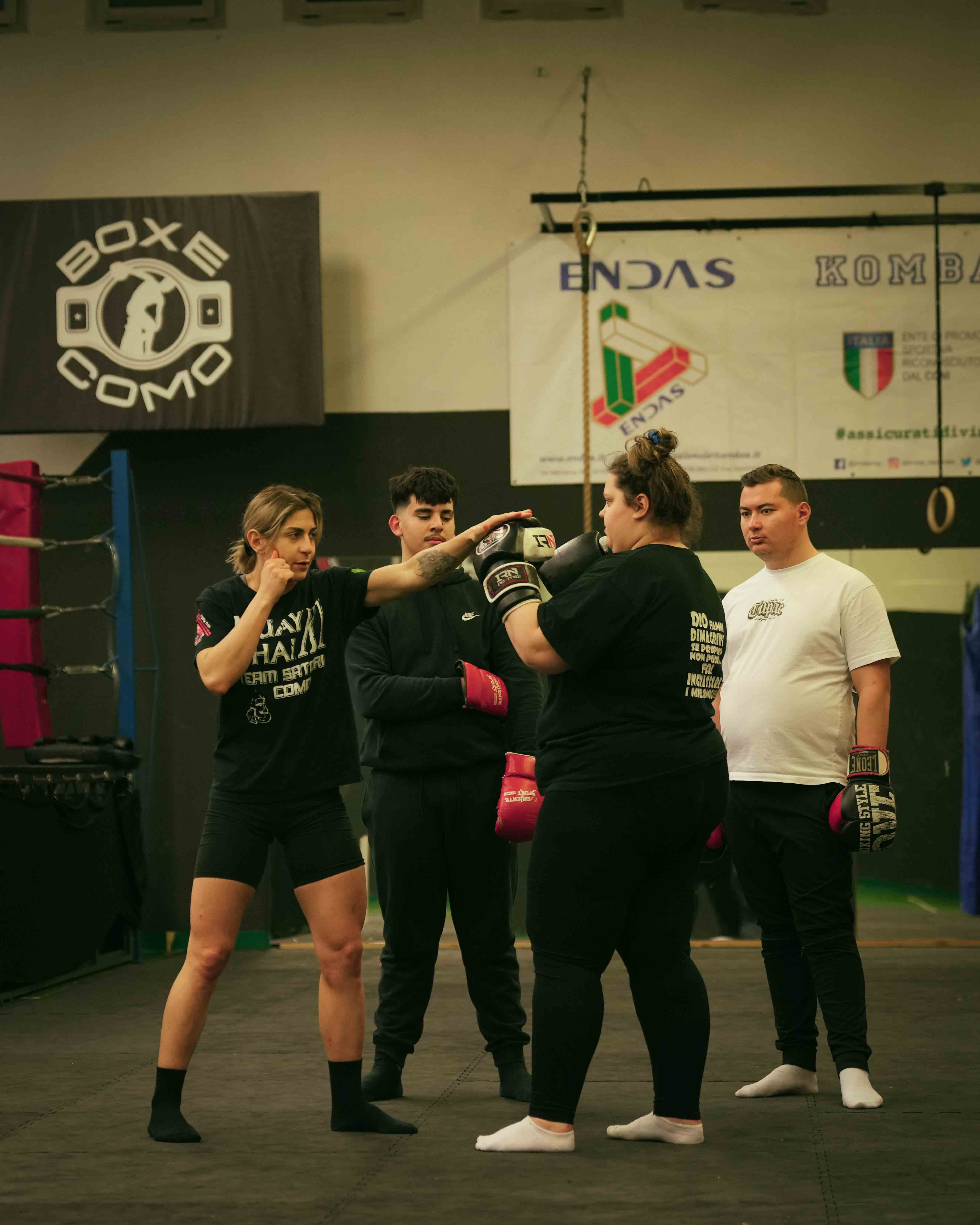
Fuori Classe was launched in 2016 in response to growing needs from the field of child neuropsychiatry. This is not simply a project that sits alongside football activities—it is fully integrated into the youth sector of the club. In fact, Como 1907 is the only professional football team in Italy with a squad made up of children and young people on the autism spectrum. It’s a rare project, built with courage and professionalism, involving around 14 young participants each week in training sessions that focus not only on technique, but also on emotional and relational development. Coaches work alongside psychologists and educators to strengthen social skills, manage emotions, and promote teamwork. Every Friday becomes an eagerly awaited moment—not just for sport, but for the weekly “recap” ritual, led by Gabriele Barreca and the professional staff, where the group shares the week’s successes and symbolically awards the captain’s armband to the standout participant. A simple gesture that strengthens belonging and celebrates personal commitment.

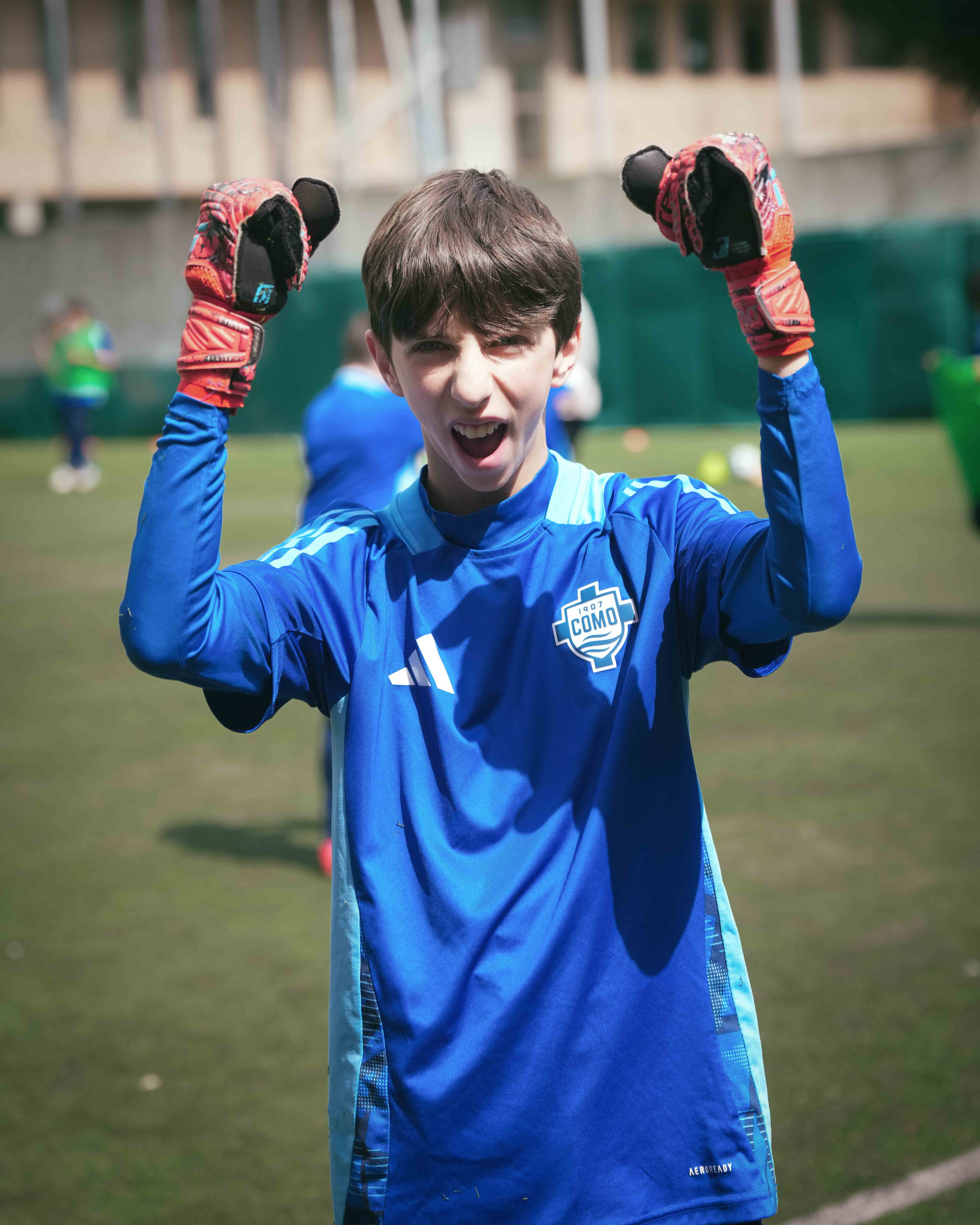
Closely linked to this pathway, the So-Stare educational centre represents the daily presence of Fondazione Somaschi in the community. Active since 2008 on Viale Varese, it welcomes between 30 and 35 children and teens aged 6 to 17 every day, offering a space for prevention, care, and educational guidance. Coordinated by Samuele Robbioni and a multidisciplinary team, the centre works in close collaboration with schools, social services, and neuropsychiatric services. Inside So-Stare, children and adolescents find a safe environment where they can explore who they are, learn, make mistakes, and grow. Activities include workshops, study support, sport, culture, and psychoeducational counselling.
Among the most appreciated activities is Muay Thai, an innovative proposal that combines discipline, physical awareness, and self-esteem building. Educator Jonathan Tupputi explains:
“Our goal is to help young people connect with their bodies. Many of them have never done sport before, and this discipline challenges them while building confidence. They learn to look their opponent in the eye, to respect timing and strength, to manage their energy. It’s about control, not violence. It’s an educational journey in every sense.”

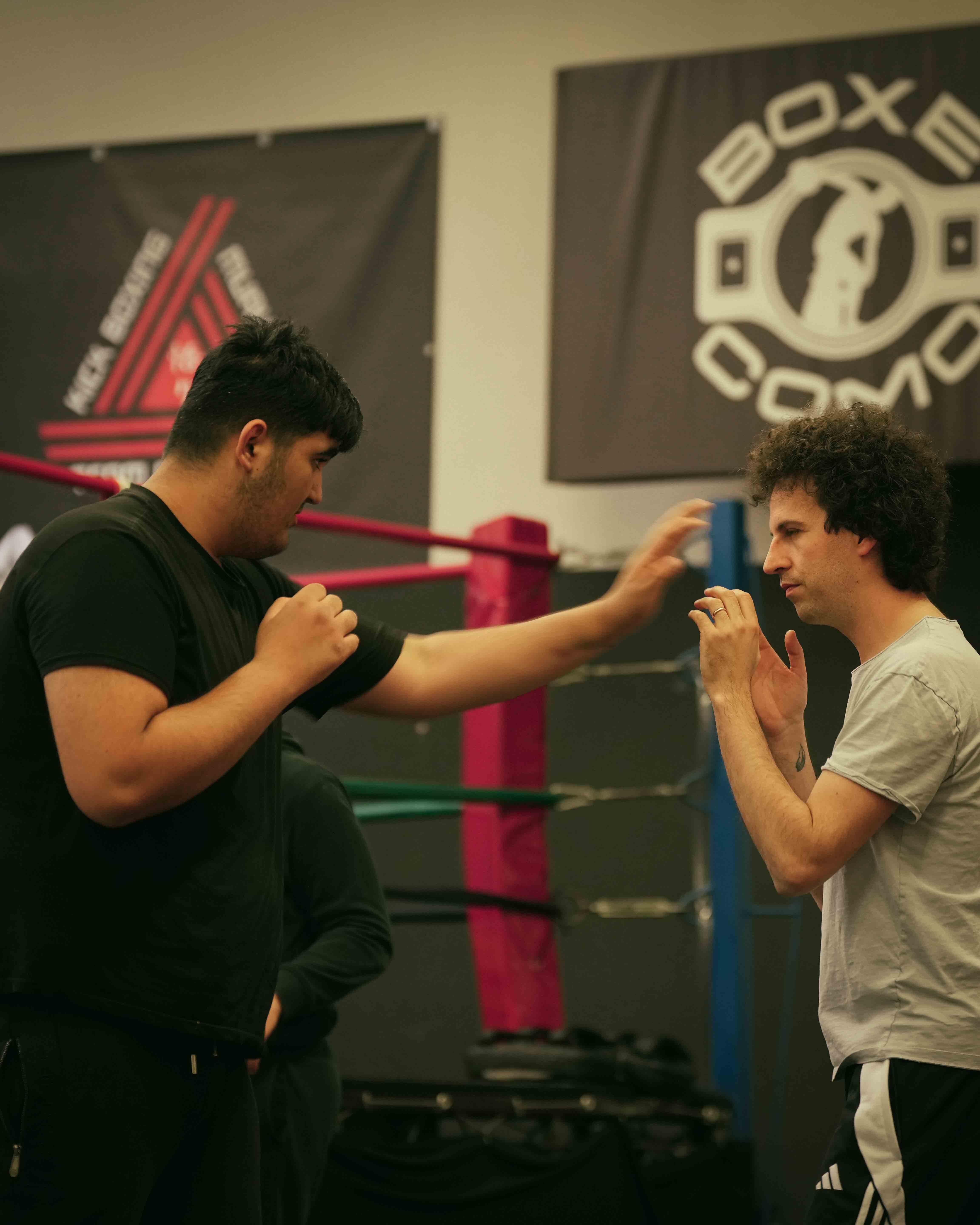
The children themselves speak about what this opportunity means to them. Noah says: “It makes me feel good because I can let off steam, and I learn how to defend myself.” He adds:
“It helped me understand how to control my strength—when to use more or less. The hardest part? Staying still!” he jokes. “What I like most is the sparring.” Sara adds: “At first, I had a lot of limits. I struggled to throw punches and kicks—I was scared. But now, little by little, I’m opening up. It helps me control my anger. It’s a moment that’s just for me, where I can release tension without getting hurt.”

The bond between Como 1907 and Fondazione Somaschi has grown stronger over time, thanks to the sensitivity and initiative of key figures. Saverio Meroni, head of the Annunciata Educational Community, explains: “It all started with a connection between Samuele Robbioni—who was working with Como 1907—and Fondazione Comasca. We had received specific requests from the neuropsychiatric sector, so we applied for funding that allowed us to hire a coordinator, an educator, and a coach for a team of children on the autism spectrum. Como truly believed in the project—they integrated us into the club, provided technical equipment, and never stepped back, even when it looked like the initiative might come to an end.”
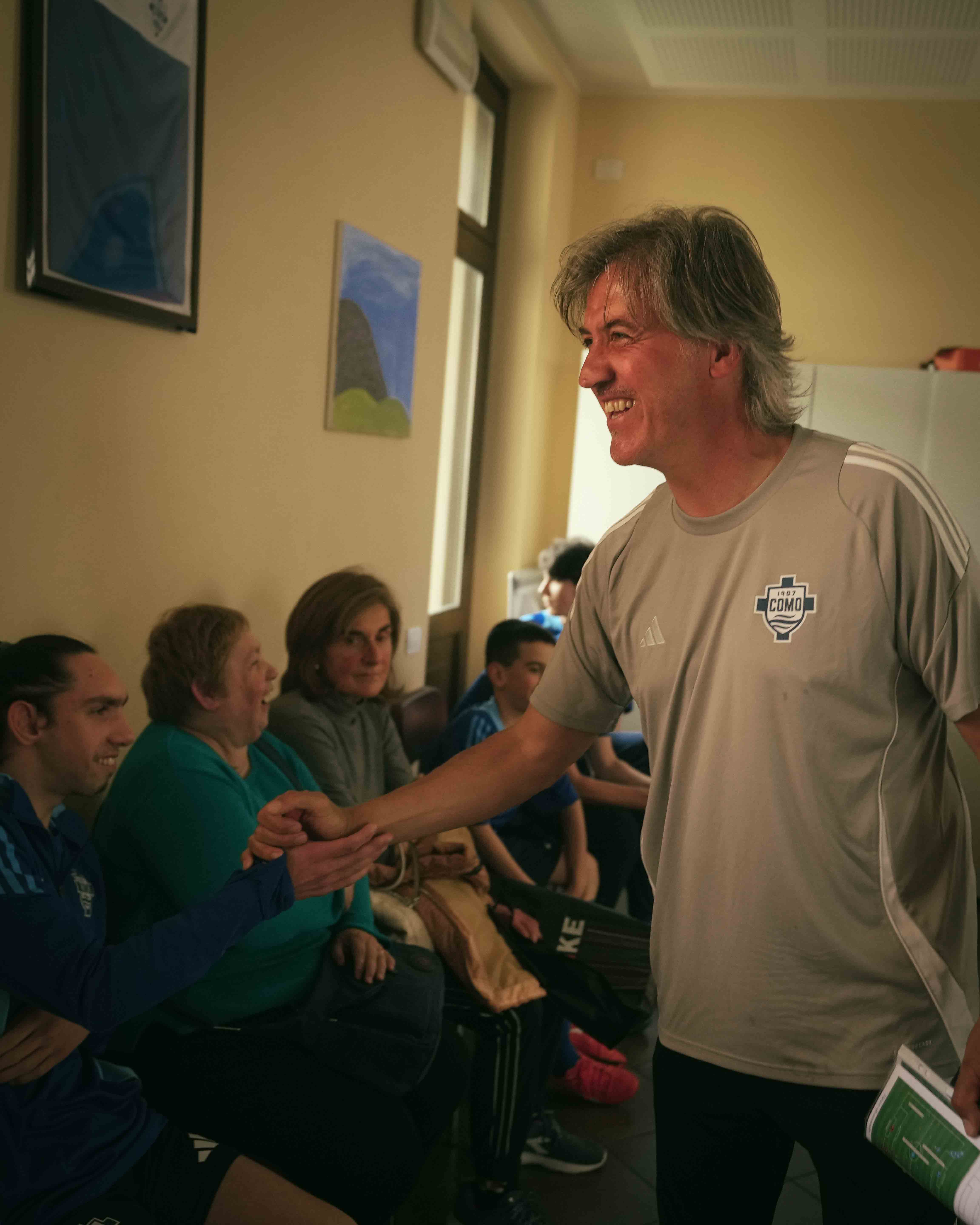
Family involvement is another essential component. Meetings, shared moments, and support from specialists give parents a way out of isolation and create spaces for real dialogue. “The biggest challenge for families today is loneliness,” Meroni points out. “These spaces help them connect with the right professionals and feel less alone. It’s through meeting others that we grow—you’re exposed to lives different from your own.”
But perhaps the words that best sum up the deeper meaning of this journey come from coach Vincenzo Saladino, who is on the pitch every week with the kids: “What matters most is creating the right environment for them. All it takes are four words: meeting, listening, generosity, and creativity.”
A simple, concrete, powerful philosophy. Because in these projects, football is more than just a sport—it’s a tool for connection, an educational act, and a real chance to change lives.

